The Angels Wash Their Faces

Brief Synopsis
Cast & Crew
Ray Enright
Ann Sheridan
Billy Halop
Bernard Punsley
Leo Gorcey
Huntz Hall
Film Details
Technical Specs

Synopsis
In order to put an end to Joy Ryan's effort to organize her neighborhood against the corruption of City Hall, Alfred Martino, a crooked land speculator, frames Joy's brother Gabe, a reform school graduate, for arson. Gabe's pals, the members of the Termite Club, then decide to go to work on the side of law and order to bring the real arsonists to justice. After studying night and day to win the position of honorary mayor during Boy's Week activities, club member Billy Shafter appoints his pals as police commissioner and fire chief. Working with Pat Remson of the district attorney's office, the boys uncover evidence that proves that the fire commissioner is involved in an arson racket to collect insurance payments. After Martino's thugs, Kroner and Shuffle, are caught at the scene of a fire and released before they can be questioned, the boys enforce some antiquated laws and, with the support of the police department, pillory the thugs and take their case to the people. Upon learning that their boss is planning to flee the country, Kroner and Shuffle confess everything, and with Martino's arrest, the city is swept clean of corruption, Gabe is exonerated and Pat and Joy are free to marry.

Director
Ray Enright
Cast
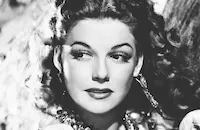
Ann Sheridan

Billy Halop
Bernard Punsley

Leo Gorcey

Huntz Hall

Gabriel Dell

Bobby Jordan
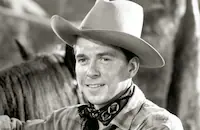
Ronald Reagan

Bonita Granville

Frankie Thomas
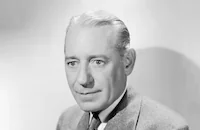
Henry O'neill

Eduardo Ciannelli
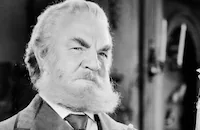
Berton Churchill
Bernard Nedell
Dick Rich
Jack Searl

Margaret Hamilton

Marjorie Main

Minor Watson
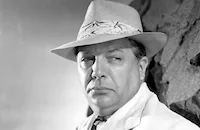
Cyrus Kendall
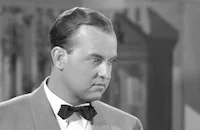
Grady Sutton
Aldrich Bowker
Robert Strange
Egon Brecher
Sarah Padden
Ann Bupp
Crew
Milo Anderson
Robert Buckner
Niven Busch
Hugh Cummings
Adolph Deutsch
Michael Fessier
H. Jonathan Finn
Leo F. Forbstein
James Gibbon
Ray Heindorf
Jesse Hibbs
Max Siegel
Ted Smith
Dolph Thomas
Arthur L. Todd
Jack L. Warner

Film Details
Technical Specs

Articles
The Angels Wash Their Faces
The story begins in a reformatory, where good-at-heart Gabe Ryan is ready for parole in the custody of Joy, his swell-looking big sister. Arriving in the new neighborhood where Joy has set up house for them, Gabe gets into a scrape with a gang of tough-talking street urchins, called the Termites and played by the Dead End Kids, natch. Gabe succeeds in beating up their leader, and the Termites instantly recruit him as a member, reasoning that if he's such a good fighter they want him on their side.
The plot thickens when Gabe and the gang get mixed up with two local mobsters whose evil activities (we later learn) include burning down buildings in an insurance-money scam. When an ill-fated Termite is killed in one of their fires, the crooks frame Gabe for the crime. The future looks grim until an enterprising Termite wins a Boys Week contest that makes him a temporary junior mayor-for just enough time to bring down the arson mob, helped by a deputy district attorney who just happens to be courting Gabe's swell-looking sister.
Reagan and Ann Sheridan, who did five pictures together between 1938 and 1942, make a nice couple as the deputy DA and Gabe's pretty sibling. The Angels Wash Their Faces was their third collaboration; the first was Naughty But Nice, also released in 1939 and directed by Enright, who had a good sense of the low-key chemistry they shared.
But how about Reagan and the Dead End Kids, who'd already teamed up for Hell's Kitchen earlier in the year? If nothing else, you have to get a kick from the contrast, which operated both in front of the camera and behind it, where the Dead Enders amused themselves by setting off giant firecrackers and releasing mice in women's dressing rooms. "Counting noses and getting them all in one scene was a major chore," Reagan wrote in his autobiography, adding that "sometimes it was a relief when they did take off and disappear for a few hours."
When they joined Reagan for Hell's Kitchen and The Angels Wash Their Faces, the Kids were only a few pictures into their amazingly long career. They'd first met when Sidney Kingsley cast them in his play Dead End, a corrosive urban melodrama that made a big Broadway splash in 1935 and did the same in movie theaters when the 1937 screen version arrived. Staying together as the Dead End Kids, they consolidated their group identity in three 1938 releases including Crime School, starring Humphrey Bogart, and Angels with Dirty Faces, starring James Cagney and Sheridan, and then five 1939 films including They Made Me a Criminal, with Sheridan and John Garfield under Busby Berkeley's direction. These established the Kids as a six-pack of stars with enough movie charisma to come off as basically decent lads who just happen to look, sound, and behave like juvenile delinquents.
In addition to the six Warner Bros. productions that gave momentum to their career, some of the Dead Enders went to Universal for a feature series called Dead End Kids and Little Tough Guys, plus some matinee serials, in the late 1930s. Members of the gang then moved to Monogram Pictures, where starting in 1940 they played the East Side Kids in a string of low-budget programmers with costars like Gale Storm and Bela Lugosi, titles such as Mr. Wise Guy (1942) and Spooks Run Wild (1941), and an increasing talent for ensemble acting. Their last incarnation began in 1946 when they became the Bowery Boys, led by Leo Gorcey, who'd been the troupe's de-facto star for years, and Huntz Hall, the second-most-famous member. In pictures like Angels' Alley and Jinx Money (both 1948) they combined broad comedy with crime-drama thrills; in 1950s entries like Feudin' Fools (1952) and Crazy Over Horses (1951) they went strictly for laughs. Gorcey quit the gang in 1956, and seven pictures later the others followed suit. The troupe reached its final fade-out in 1958 with the ironically titled In the Money.
Reagan had gotten wind of the Kids' shenanigans before he met them to film Hell's Kitchen, and the "lurid tales" about them made him nervous. But he calmed down after getting a tip from James Cagney, who'd starred with them in Angels with Dirty Faces, the memorable 1938 crime drama. "It's very simple," Cagney said. "Just tell them you look forward to working with them but you'll slap hell out of them if they do one thing out of line." This worked, Reagan later reported. In a production where fireworks routinely blew furnishings to smithereens, he had "the only unscorched chair on the set."
Reagan obviously made good in later years, and most of the original Dead Enders did too. Hall kept up his performing career, as did Gorcey until his death in 1969; Gabriel Dell became a regular on Steve Allen's hugely popular TV show; Billy Halop appeared frequently on All in the Family; and Bernard Punsly became a physician. The exception is Bobby Jordan, who failed to sustain his acting career after walking away from the Bowery Boys series because Gorcey and Hall were getting top billing.
The Angels Wash Their Faces doesn't nearly match the dramatic power of Angels with Dirty Faces, which inspired its rather odd title. But it's far from the worst movie in Reagan's filmography or that of the Dead End gang. The big fire scene, which takes the life of an innocent victim as the Kids look on in horror, is filmed with surprising realism and suspense. The lead performances are always likable, if rarely exciting. And there's a solid supporting cast including child star Bonita Granville as the Dead Enders' female wannabe, the delightfully prissy Grady Sutton as a secretary named Gildersleeve, witchy Margaret Hamilton as a stuffy schoolteacher, and stalwart Marjorie Main, a veteran of Dead End on stage and screen, as the fire victim's grieving mom. In all, the picture is a fine example of family filmmaking, late-1930s style.
Executive Producer: Hal B. Wallis
Director: Ray Enright
Screenplay: Michael Fessier, Niven Busch, Robert Buckner
Cinematography: Arthur L. Todd
Film Editing: James Gibbon
Art Direction: Ted Smith
Music: Adolph Deutsch
Cast: Ann Sheridan (Joy Ryan), Ronald Reagan (Pat Remson), Billy Halop (Billy Shafter), Bernard Punsley (Sleepy Arkelian), Leo Gorcey (Leo Finnegan), Huntz Hall (Huntz), Gabriel Dell (Luigi), Bobby Jordan (Bernie), Bonita Granville (Peggy Finnegan), Frankie Thomas (Gabe Ryan), Henry O'Neill (Remson, Sr.), Eduardo Ciannelli (Martino), Margaret Hamilton (Miss Hannaberry), Marjorie Main (Mrs. Arkelian), Grady Sutton (Gildersleeve). BW-86m.
by David Sterritt

The Angels Wash Their Faces
Ronald Reagan, 1911-2004 - TCM Remembers Ronald Reagan
Ronald Reagan, the actor turned elected official whose fascinating career saw him develop as a contract player for Warner Brothers studios, to a politician who fulfilled his ambitions by becoming the 40th President of the United States, died at his home in Los Angeles on June 5 after a long battle with Alzheimer's disease. He was 93.
He was born Ronald Wilson Reagan on February 6, 1911 in Tampico, Illinois to John and Nelle Reagan. When Reagan was nine, his family settled down in the small community of Dixon, about 100 miles west of Chicago. After high school, Reagan enrolled in Eureka College, a small Christian school near Peoria. He graduated in 1932 with a degree in Economics, and pursued a career in broadcasting. His first gig was as a part-time announcer at WOC in Davenport, Iowa. Within a year, WOC had merged with its big-sister station, WHO in Des Moines, and Reagan was hired as a sports announcer.
In the spring of 1937, Reagan drove to Southern California to catch the Chicago Cubs in spring training on Santa Catalina Island. While he was in California, he wrangled a screen test and signed a contract for $200 a week with Warner Brothers. His film debut was rather inauspicious; he portrayed a radio announcer in an innocuous comedy Love is on the Air (1937). He made a few more "B" programmers like Hollywood Hotel (also 1937), and Girls on Probation (1938), before getting his first prominent role opposite Bette Davis in the popular tearjerker, Dark Victory (1939).
Although he seldom got credit for being a good actor, there was no denying that Reagan held his own given the right material: Knute Rockne, All American as the doomed Notre Dame football hero George "The Gipper" Gipp, where he delivered the film's immortal line "Win one for the Gipper!"; Santa Fe Trail in which he ably supports Errol Flynn in one of the boxoffice hits of its era (both 1940); Kings Row (1941), featuring one of his finest performances as a small-town playboy whose legs are amputated by a careless surgeon; and Desperate Journey (1942) where he again supported Flynn in an exciting action picture.
Due to his poor eyesight, Reagan didn't see any action in World War II, so the studio heads assigned him to star in a series of patriotic films produced by the First Motion Picture Unit of the Army Air Forces in Culver City. Between 1942-45, Reagan starred in over 400 of these films. After the war, Reagan still found some good roles: The Voice of the Turtle (1947) proved he had a deft hand at light comedy opposite Eleanor Parker; The Hasty Heart (1949) offered another underrated performance as he ably portrayed the Yank in John Patrick's much heralded wartime play; and Storm Warning (1950) was a slick melodrama that cast Reagan as a crusading District Attorney determined to bring the KKK in a small southern town, with the help of Doris Day and Ginger Rogers!
It was around this time that Reagan became involved in politics. In 1947, he began a five-year term as president of the Screen Actors Guild (SAG), and testified in October of that year before the newly formed House Un-American Activities Committee (HUAC). He identified suspected Communists Larry Parks, Howard Da Silva and Alexander Knox, all of whom were subsequently called to testify, and subsequently blacklisted. Later records showed Reagan was so concerned about the Communist influence in Hollywood, that he became an FBI informer.
As Reagan became steeped in his political career, his parts throughout the '50s became inferior: the notorious Bedtime for Bonzo (1951); the coy "sex" comedy She's Working Her Way Through College (1952) that cast him as a college professor who romances a stripper! (Virginia Mayo); Cattle Queen of Montana (1955), a sluggish Western that even the redoubtable Barbara Stanwyck couldn't save; and finally Hellcats of the Navy (1957), a stodgy war picture that would be his only film that co-starred his wife Nancy (Davis).
Television offered some salvation. For eight years, (1954-62), Reagan served as the host of General Electric Theater, a televised series of dramas. He also found a niche as GE's goodwill ambassador to employees and to civic and business groups around the country, furthering his taste and honing his craft as a public official. By the mid '60s, Reagan would move into politics entirely, save for one last film, the thrilling The Killers (1964), Reagan's only known villainous role, as a murderous gangster. That same year, he actively campaigned for Republican Presidential candidate Barry Goldwater, although Goldwater lost to Lyndon B. Johnson.
Reagan whose profile was riding high, had cemented his future as a successful politician. In 1966, he ran against incumbent Governor Pat Brown for the state of California and won, serving successfully for two terms until 1974.
Reagan began an all-out, two-year drive to wrest the 1976 nomination from incumbent Gerald R. Ford, an appointed vice president who became president on the resignation of Nixon. Reagan fell short by a handful of delegates to the Republican national convention. But Ford lost to Jimmy Carter, and Reagan became the front-runner to challenge Carter in 1980. After defeating Carter, Reagan held two terms as President of the United States (1981-89). After his second term was over, he retired quietly in California. In 1994, it was revealed to the media that Reagan was suffering from Alzheimer's disease; he had been kept out of the public eye since then.
He was married briefly to actress Jane Wyman (1940-48), and had two children; a daughter Maureen and an adopted son, Michael. In 1952, he married a budding film starlet, Nancy Davis, who bore him two more children; a daughter, Patty; and a son, Ronald Jr. Ronald Reagan is survived by Nancy, Michael, Patty and Ron Jr. His daughter Maureen died of Melanoma in 2001 at the age of 60.
by Michael T. Toole
Ronald Reagan, 1911-2004 - TCM Remembers Ronald Reagan
Quotes
Trivia
Notes
Working titles for this film were Battle Cry of City Hall and The Battle Cry of City Hall. Although onscreen credits and contemporary reviews list Sarah Padden in the role of "Mrs. Smith", the Call Bureau Cast Sheet lists Sibyl Harris in the role. It is not known if Harris appeared in another role in the film. According to a news item in Hollywood Reporter, the "Dead End Kids" were "cleaned up" for this film in response to complaints from parents' organizations. This film was a sequel to the 1938 Warner Bros. film Angels with Dirty Faces. Modern sources add the following actors to the cast: John Hamilton (Assistant Police Chief H. A. Merton), Frank Coghlan, Jr. (Boy), Frankie Burke (Reform school boy with knife), John Ridgely, John Harron and Max Hoffman, Jr. (Reporters), William Hopper (Photographer), Elliott Sullivan (Prisoner), Howard Hickman (Judge), Lee Phelps, Jack Clifford and Tom Wilson (Guards), Edward Keane (Defense attorney), Wendell Niles (Announcer), Harry Strang (Assistant turnkey) and Charles Trowbridge. For additional information about this series and others featuring "The Dead End Kids," for Crime School, and consult the Series Index for "The Dead End Kids," "The East Side Kids" and "The Little Tough Guys."

Miscellaneous Notes
Released in United States Summer August 26, 1939
Released in United States Summer August 26, 1939














